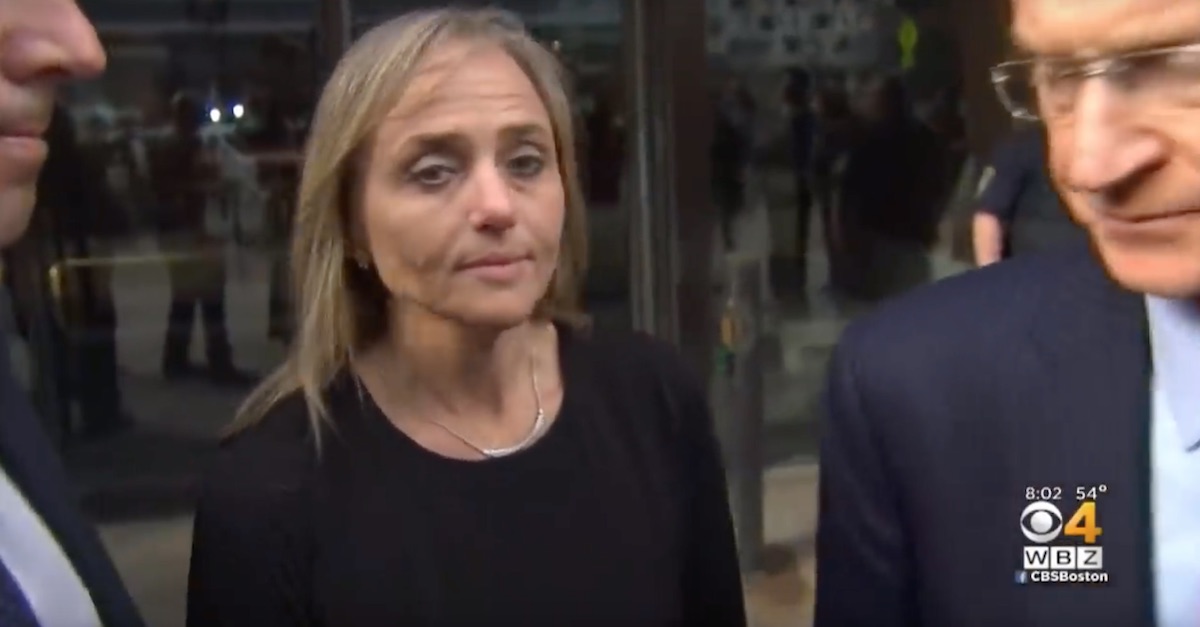
On Monday, the ACLU of Massachusetts submitted an amicus brief on behalf of 61 retired Massachusetts judges; the brief seeks to persuade the federal court to dismiss obstruction of justice charges against Newton District Court Judge Shelley Joseph. Those charges stemmed from Judge Joseph allegedly assisting an undocumented immigrant in evading capture by U.S. Immigration and Customs Enforcement (ICE) .
The undocumented immigrant, Jose Medina-Perez (identified in official documents only as “A.S.”), had been a fugitive from justice, and had been previously deported twice from the United States. A.S. was arrested again in March 2018; on Medina-Perez’s court date, an ICE officer showed up, ready to pick up Medina-Perez for potential deportation. During the case, discussion arose in the courtroom as to whether Medina-Perez had really been properly identified by ICE. Ultimately, according to reports, Judge Joseph had a court clerk tell the ICE officer to wait outside the courtroom while helping facilitate Medina-Perez’s exit through courthouse’s rear door.
For her part in allegedly helping Medina-Perez leave the courthouse, Judge Joseph was suspended without pay and later indicted for Conspiracy to Obstruct Justice, Obstruction of Justice, Aiding and Abetting, and Obstruction of a Federal Proceeding. Wesley MacGregor, a court officer allegedly involved in the matter, was also indicted. Several months afterward, Joseph’s $184,000 salary was reinstated.
Joseph has moved to dismiss the charges against her. Now, 61 retired judges have banded together to urge the presiding court to grant Joseph’s motion. According to their brief, any assistance Joseph gave to the undocumented immigrant was a reasonable manner of ensuring that her courtroom functioned fairly.
The amici wrote that to continue Joseph’s prosecution “will irrevocably tip the scales of justice because it will undermine the very authorities that make balance possible,” and that judges must sometimes “tailor the courthouse environment to the goal of neutral justice.” Anticipating the argument that judges operate those courtrooms as a function of law-enforcement, the amici bluntly wrote:
Occasionally frustrating the expectations of the executive branch is a core function of an independent judiciary.
“[I]f Judge Joseph is prosecuted, every Massachusetts judge in every Massachusetts courthouse will feel a constant external pressure to refrain from actions that might antagonize federal officials,” they continued.
The brief said that there have never been any allegations that Judge Joseph acted from any personal interest in this case; the underlying issue here is simply whether Joseph went too far in effectuating her particular brand of courtroom justice. Those supporting Joseph also made the subtle point that they are only able to make this crucial argument because they are themselves retired; sitting judges have no such luxury of unfettered speech – though they stand to be constrained by the fallout from a continued prosecution in Joseph’s case. The bottom line of their argument: Joseph wasn’t obstructing justice – she was ensuring it.
[Image via CBS Boston screengrab]